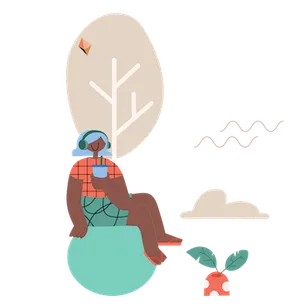Empire of Equality

Published on Monday, December 25, 2023
A Queer-Colonial Walking Tour of Berlin
walking tour, queer, post-colonial, post colonial, queer-colonial, queer colonial, critical, queer, solidarity, activism, youth, exchange, lgbtiq, lgbt, lgbtq, lgbt+, lgbtqi, lgbtqia, lgbtqia+
The Project
Berlin. The great metropolitan city of the East and today it is known for having one of the most diverse communities in Germany with a flourishing nightlife scene and a space for queer life that is unmatched. It has gained a reputation for being the most liberal metropolitan city in all of Europe. Is that really true?
Is Berlin really the Empire of Equality?
That is the question we ask ourselves about the metropolitan city that is known for confronting its past with Nazism and homophobia, and is now considered the diverse and queer safe haven of Germany and “Gay-ropa”. However despite this, in our current cultural climate, there are two current historical narratives that seem to be at odds with one another. The first is that of the free Weimar republic. In recent years, especially in media, the experimental, daring and very queer nightlife has been front and center in shows like Babylon Berlin, the 2023 Netflix documentary Eldorado: Everything the Nazis Hate among others. They’ve portrayed Berlin as at the forefront of self-expression, gay rights and community after the first world war; a utopia of sorts before national socialism. On the other hand, decolonial activists and scholars have portrayed Germany in this period, and earlier, as a hostile place to BIPOC people and its colonial subjects. The previous erasure of German colonial history is important to this narrative shift, accounting for the years of violence that have led to this moment. These current narratives exist mostly separately, but they are deeply intertwined through eugenics, womanhood, whiteness, masculinity and racial stereotypes. We take a deep dive into these nuances.
 Wintergarten Berlin and the Central Hotel, 1940. Arkitekturmuseums TU TBS 500,105
Wintergarten Berlin and the Central Hotel, 1940. Arkitekturmuseums TU TBS 500,105 With the concept of a city tour of Berlin, we explore the connections between queer history and colonial history as an educational method. We ask:what queerness, as understood today in the West, was and is there in the Global South despite the predominance of European Christian values? What impact did colonialism have on gender issues? How widespread was racism in queer Berlin of the past? And how does all of this affect the lives of queer people of color in Berlin and worldwide? Answers to these questions can help us to draw a critical picture of the city of Berlin through history and the past. In doing so, we critically understand, demonstrate and make visible these intersections.
 Liu Shi Tong and Karl Giese at the Institut für Sexualwissenschaft in 1932. From Hirschfeld’s exile/guestbook. (Deutsches Literaturarchiv Marbach)
Liu Shi Tong and Karl Giese at the Institut für Sexualwissenschaft in 1932. From Hirschfeld’s exile/guestbook. (Deutsches Literaturarchiv Marbach) The City Tour
Through a city tour, we bring our audience into the narratives of queer-colonial Berlin. Although Schöneberg, the Rote Insel and the Afrikanisches Viertel are considered the centers for queer and colonial history respectively, we seek to venture out of these neighborhoods. By doing so, this intersectional history encompasses not just Berlin, but the rest of the colonized, and slowly globalizing, world.
 Satellite images of the today’s HKW and the remains of the Institute für Sexualwissenschaft and the rest of its Tiergarten neighborhood in 1953 pre-reconstruction. (Berlinger Morgenpost)
Satellite images of the today’s HKW and the remains of the Institute für Sexualwissenschaft and the rest of its Tiergarten neighborhood in 1953 pre-reconstruction. (Berlinger Morgenpost) The Archive
The city tour is accompanied by a forthcoming online archive. It will be open-access in English and German with not just information about the tour stops, but other historical intersections. Stay tuned for updates on the archive by following us on social media.
Contributors
This project was created by Critical Queer Solidarity e.V. and funded by the State of Berlin’s Landesstelle für Entwicklungszusammenarbeit (LEZ). We would like to thank the Schwules Museum, Spinnboden Archiv for their archival resources as well as the contributors at Black Central Europe whose research and archive contributed to the development of the tour and our archive greatly.
We would also like to recognize our contributors Monica Gutierrez and Thomas Schallart as well as Danai and Sefa Okutan for their role in communications.

Get In Touch

